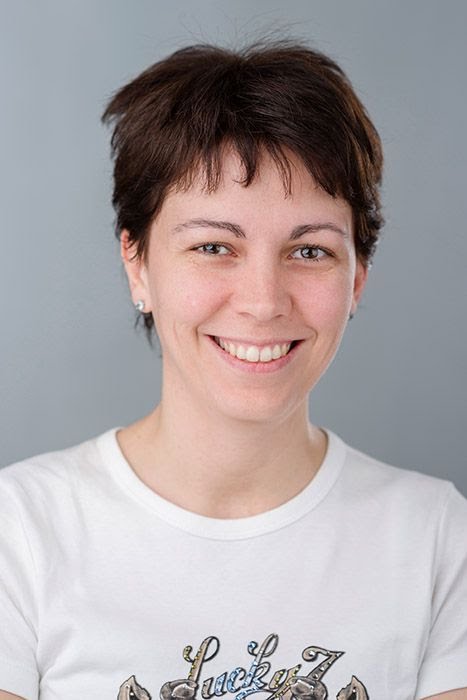Studying at the University of Verona
Here you can find information on the organisational aspects of the Programme, lecture timetables, learning activities and useful contact details for your time at the University, from enrolment to graduation.
Academic calendar
The academic calendar shows the deadlines and scheduled events that are relevant to students, teaching and technical-administrative staff of the University. Public holidays and University closures are also indicated. The academic year normally begins on 1 October each year and ends on 30 September of the following year.
Course calendar
The Academic Calendar sets out the degree programme lecture and exam timetables, as well as the relevant university closure dates..
| Period | From | To |
|---|---|---|
| primo semestre | Sep 15, 2014 | Jan 9, 2015 |
| secondo semestre | Feb 19, 2015 | May 29, 2015 |
| Session | From | To |
|---|---|---|
| sessione invernale | Jan 12, 2015 | Feb 18, 2015 |
| sessione estiva | Jun 4, 2015 | Jul 11, 2015 |
| sessione autunnale | Aug 24, 2015 | Sep 9, 2015 |
| Session | From | To |
|---|---|---|
| sessione autunnale | Dec 12, 2014 | Dec 19, 2014 |
| sessione invernale | Apr 8, 2015 | Apr 10, 2015 |
| sessione estiva | Sep 10, 2015 | Sep 11, 2015 |
| Period | From | To |
|---|---|---|
| festività natalizie | Dec 22, 2014 | Jan 5, 2015 |
| festività pasquali | Apr 3, 2015 | Apr 7, 2015 |
| vacanze estive | Aug 10, 2015 | Aug 22, 2015 |
Exam calendar
Exam dates and rounds are managed by the relevant Economics Teaching and Student Services Unit.
To view all the exam sessions available, please use the Exam dashboard on ESSE3.
If you forgot your login details or have problems logging in, please contact the relevant IT HelpDesk, or check the login details recovery web page.
Academic staff
 nicola.sartor@univr.it
nicola.sartor@univr.it
Study Plan
The Study Plan includes all modules, teaching and learning activities that each student will need to undertake during their time at the University.
Please select your Study Plan based on your enrollment year.
1° Year
| Modules | Credits | TAF | SSD |
|---|
2° Year activated in the A.Y. 2015/2016
| Modules | Credits | TAF | SSD |
|---|
A course to be chosen among the following| Modules | Credits | TAF | SSD |
|---|
| Modules | Credits | TAF | SSD |
|---|
A course to be chosen among the following| Modules | Credits | TAF | SSD |
|---|
Legend | Type of training activity (TTA)
TAF (Type of Educational Activity) All courses and activities are classified into different types of educational activities, indicated by a letter.
Macroeconomics (advanced) (2015/2016)
Teaching code
4S02461
Academic staff
Coordinator
Credits
9
Language
English
Scientific Disciplinary Sector (SSD)
SECS-P/01 - ECONOMICS
Period
primo semestre dal Sep 28, 2015 al Jan 8, 2016.
Learning outcomes
This course is an introduction to the study of macroeconomics at an advanced level. The first part is concerned with growth and should provide the tools to answer two fundamental questions: Why are some economies so much richer than others, and what accounts for the huge increase in real incomes over time? In the second part we study the neoclassical consumption model, the pricing of financial assets and the open economy. The third part of the course will focus on some economic variables that have played a key role in recent macroeconomic trends since 2008, such as the misalignment of real exchange rates and public debt sustainability.
Program
First part:
Introduction to macroeconomics: Method, measuring the macroeconomy, comparing performances
Growth theory: The Solow growth model, R&D models
The overlapping generations model
Second part:
Consumption
Investment
Open economy
Second part:
Monetary policy in an open economy
Further discussion on the real exchange rate
The sustainability of the public debt
Lessons from the great European crisis: economic and financial aspects
Examination Methods
Written examination
Type D and Type F activities
Modules not yet included
Career prospects
Module/Programme news
News for students
There you will find information, resources and services useful during your time at the University (Student’s exam record, your study plan on ESSE3, Distance Learning courses, university email account, office forms, administrative procedures, etc.). You can log into MyUnivr with your GIA login details: only in this way will you be able to receive notification of all the notices from your teachers and your secretariat via email and soon also via the Univr app.
Linguistic training CLA
Gestione carriere
Student login and resources
Graduation
List of theses and work experience proposals
| theses proposals | Research area |
|---|---|
| La (cattiva) gestione dei fondi comunitari in Italia | ECONOMICS - ECONOMICS |
| Analisi dell'Impatto della Regolamentazione: potenziale e applicazioni concrete | Various topics |
| Costs and benefits of the new Turin-Lyon railway line | Various topics |
| Costs and benefits of new systems for speed control on italian motorways | Various topics |
| Contingent valuation for the quality of hospital characteristics | Various topics |
| Evaluating occupational impacts of large investment projects | Various topics |
Internships
Admission policy
ADMISSION POLICY
The admission procedure for international students is explained in details at:
www.magecverona.it/admission-benefits/
For further information please contact magec@dse.univr.it
Additional information
Additional information
For further information visit the program website, http://magec.dse.univr.it, or send an email at magec@dse.univr.it.

 045 802 8278
045 802 8278
















